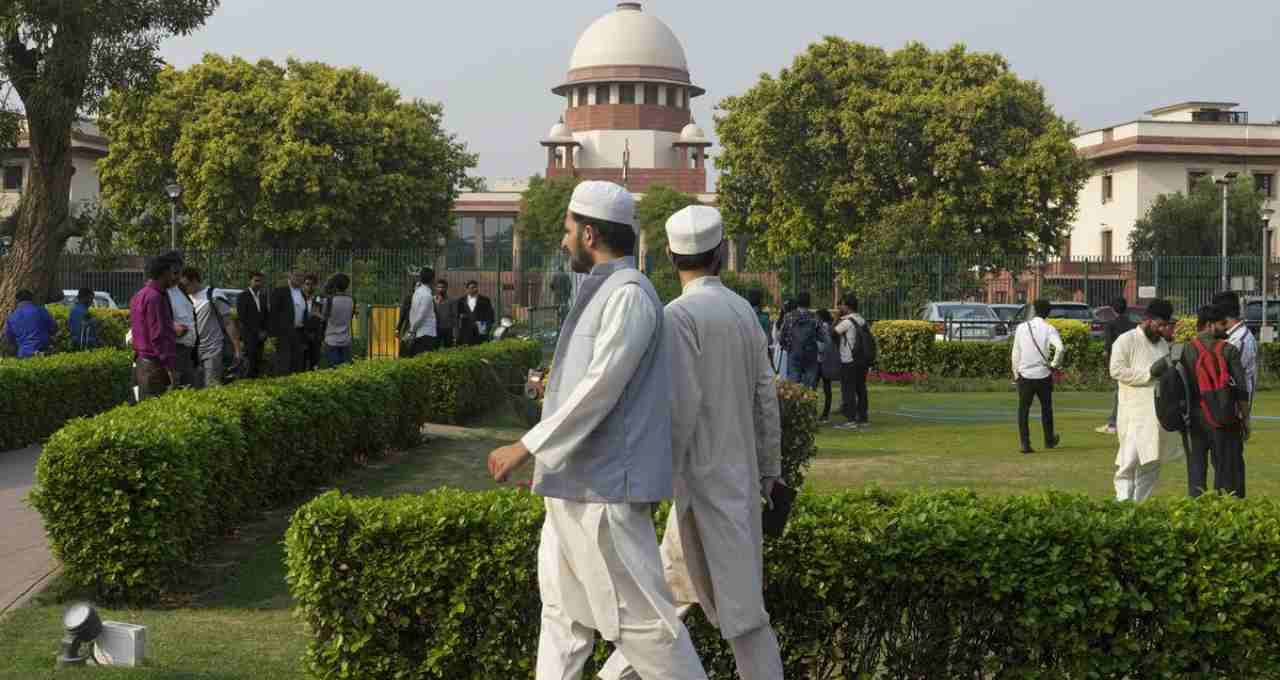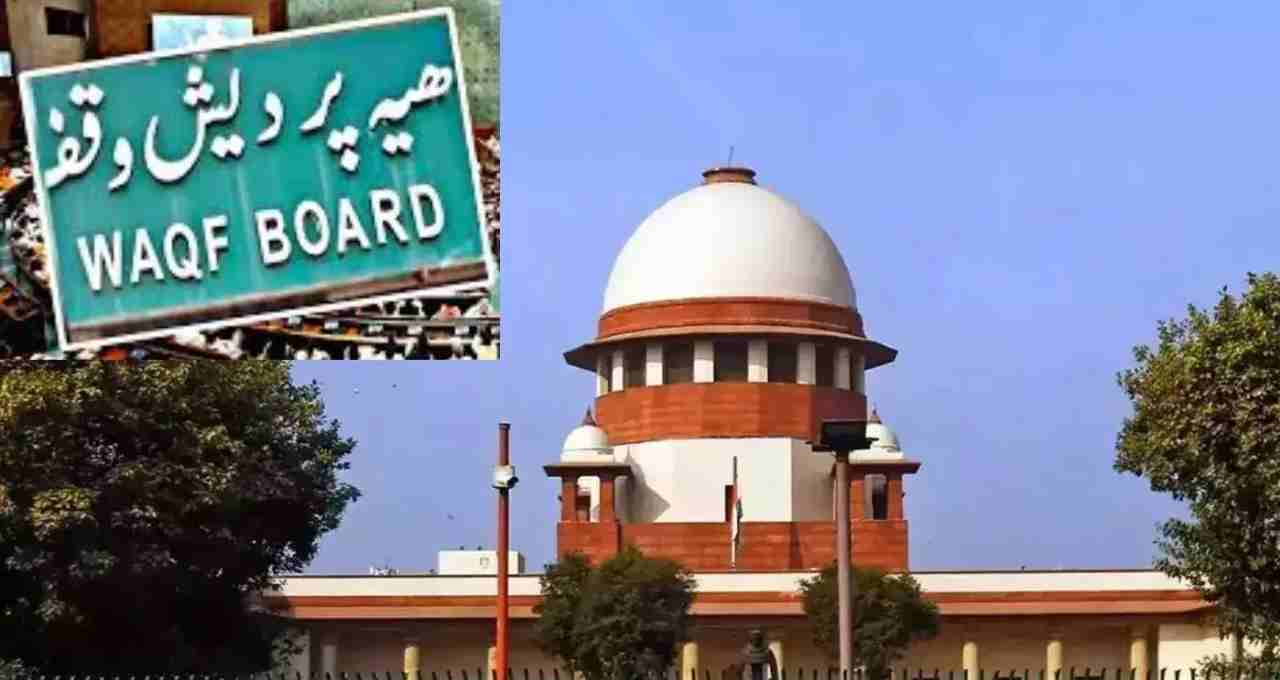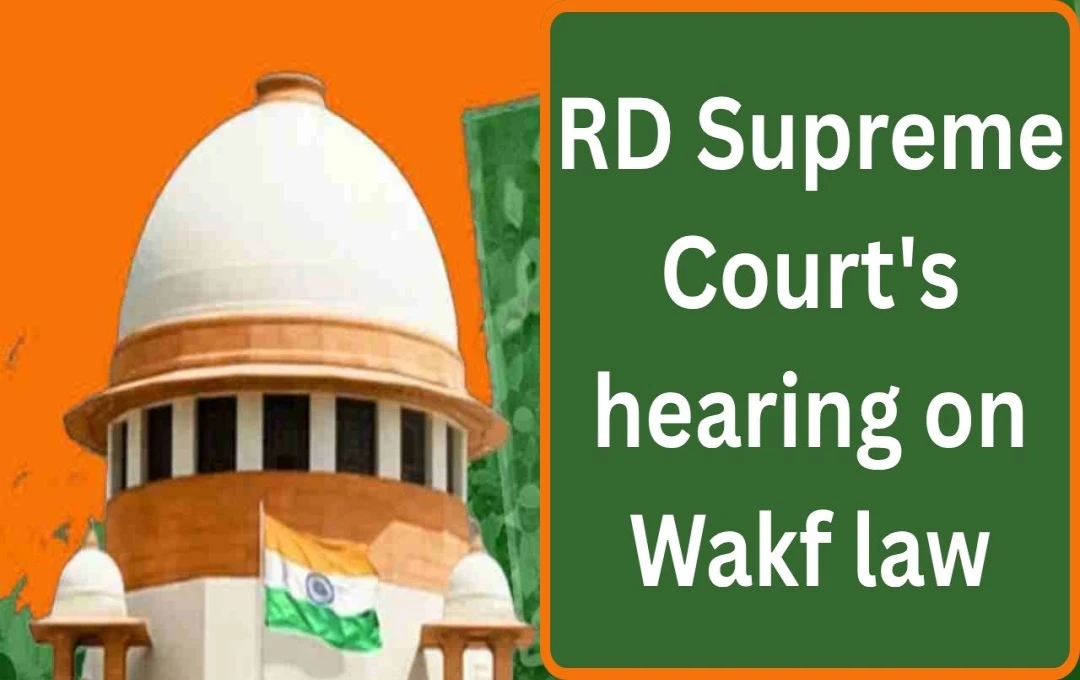The Supreme Court has issued a notice to the central government on a petition challenging the constitutional validity of certain provisions of the Waqf (Amendment) Act, 1995. A bench headed by the Chief Justice is hearing the case.
Waqf Act: The Supreme Court has issued a notice to the central government on a petition challenging the constitutional validity of certain provisions of the Waqf (Amendment) Act, 1995. This case has now been clubbed with other pending petitions challenging the Waqf Act, 1995. The bench, headed by Chief Justice D.Y. Chandrachud, also questioned the delay in challenging the Act by the petitioner.
Ongoing Supreme Court Hearing on the Waqf Act, 1995
The Supreme Court has sought a response from the central government on questions raised regarding the constitutional validity of the provisions of the Waqf (Amendment) Act, 1995. During the hearing of the petition, the bench comprising Chief Justice D.Y. Chandrachud and Justice Augustine George Masih made b observations regarding the delay in challenging the Act. Petitioner's lawyer, Ashwini Upadhyay, stated that the petition also challenges the 2013 amendment.
In response, the CJI remarked that 12 years have passed since the 2013 amendment was enacted, and this delay could lead to the dismissal of the case. The lawyer argued that the Supreme Court is already hearing petitions challenging the Places of Worship Act, 1991, and the National Commission for Minorities Act, 1992, hence the delay.
Petitioner's Argument: Religious Discrimination in the Act

The petitioner has challenged the constitutionality of certain sections of the Waqf Act, 1995, as amended by the Waqf (Amendment) Act, 2025. They argue that the Act violates Articles 14 (right to equality), 15 (prohibition of discrimination), 21 (right to life and liberty), 25 (religious freedom), 26, and 27 of the Indian Constitution.
The petition primarily argues that the Waqf Act governs only the religious properties of Muslims, while other religions in the country lack such dedicated legislation for their religious properties. This makes the Act discriminatory on religious grounds. The petitioner also contends that the Act grants special privileges to Muslims, violating the principle of equality enshrined in the Constitution and infringing on the right to religious freedom. This nature of the Act undermines religious harmony and the principle of equality in the country.
Significance and Controversy of the Waqf Act
The Waqf Act, 1995, is a crucial law for the management of Muslim Waqf properties. It provides a legal framework for the oversight and protection of the religious and charitable properties of Muslims. However, it has been a subject of long-standing controversy due to the absence of similar specific legislation for the religious properties of other religions.
Waqf properties are a significant part of the cultural and religious heritage of the Muslim community. Under the Act, these properties are managed through Waqf Boards, operating under government supervision. However, allegations of misuse of properties and instances of corruption in management have been made against this system.

Supreme Court's Stance and Further Proceedings
While hearing the petition, the bench headed by Chief Justice D.Y. Chandrachud issued a b warning regarding the delay, stating that the petition might be dismissed if the petitioner does not present arguments promptly. The court has clubbed the petition with other pending petitions challenging the 1995 Act to allow for simultaneous hearing and a comprehensive resolution of the issues.
This Supreme Court hearing could significantly impact the future of religious property laws in India. If the court declares some provisions of the Act unconstitutional, it could not only alter the management of Muslim religious properties but also increase demands for similar legislation for other religions.













